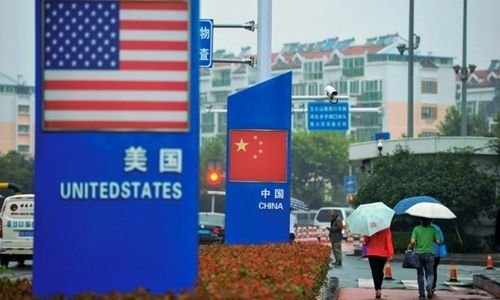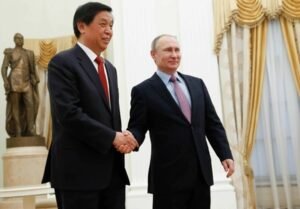
No need for a trade war, China's economy is already cracking 4
In recent months, as tensions between the world’s two largest economies have become increasingly severe, analysts have focused on analyzing the impact of import taxes on the Chinese economy.
However, many longtime China observers believe that this argument misses the most important thing.
Investment decreased, debt increased
China has long relied on infrastructure investment to drive economic growth.
Billboard outside a store selling imported goods in Shandong (China).
However, investment in Chinese fixed assets is slowing down.
However, as trade tensions escalate, it will be difficult for the Chinese Government to use public spending to promote investment, due to rising debt.
China used to encourage borrowing to boost growth.
This credit boom has raised concerns about financial risks.
Since then, the country’s debt to GDP has increased slowly, currently equivalent to 250% of GDP, or about 28,000 billion USD, according to data from DBS and CEIC.
The International Monetary Fund (IMF) issued a warning about China’s economy in 2017, that growth based on debt is not a sustainable solution.
However, as the trade war drags on, China is likely to use investment to boost its economy again.
The population is aging, betting on consumption
China is trying to improve labor productivity through automation and robotics.
`Population trends could cause the annual GDP growth of countries like China or Japan to lose more than 0.5% – 1% in the next three decades,` the IMF predicted in its 2017 report.
China’s one-child policy ended in 2016. Couples are now limited to having two children.
This is even more worrying when China is shifting its growth direction to rely on consumption.
The same is true for Chinese e-commerce giants.
Yesterday (September 24), the US and China continued to impose import taxes on hundreds of billions of dollars of each other’s goods.







